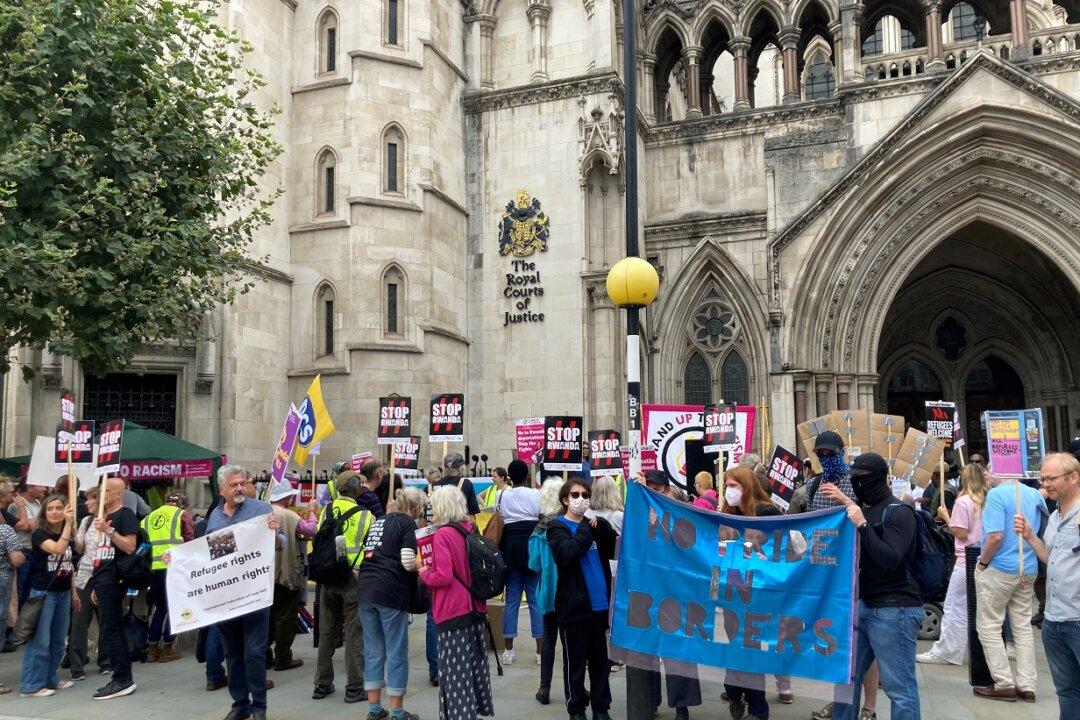An appeal at the High Court in London against the British government’s plan to send illegal immigrants to Rwanda has been told the African country “tortures and murders those it considers to be its opponents.”
In April the Prime Minister Boris Johnson—who will be replaced on Tuesday by Foreign Secretary Liz Truss—announced plans to send people who cross the English Channel in small boats and enter Britain illegally to Rwanda while their asylum claims are processed.





